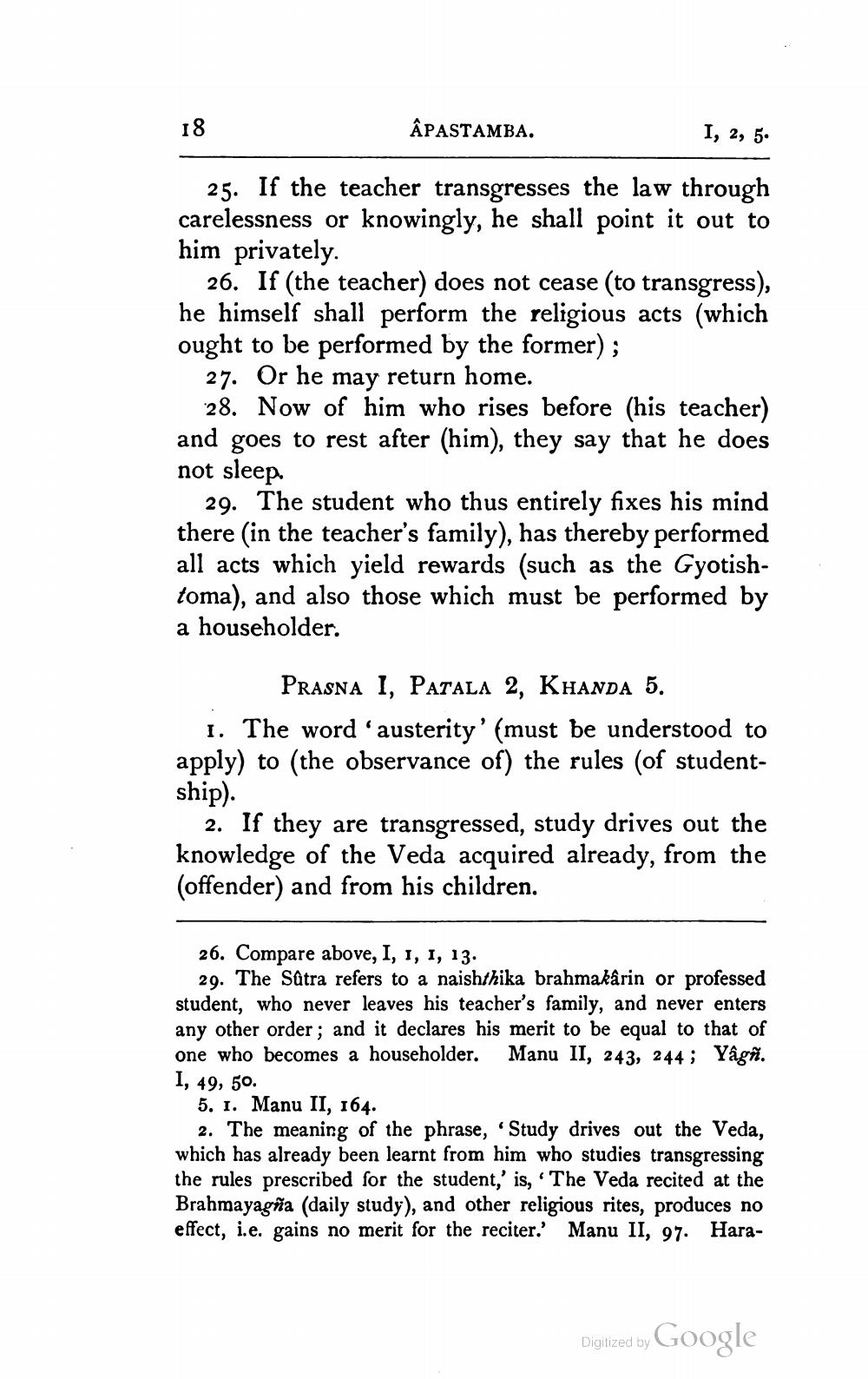________________
18
ÂPASTAMBA.
I, 2, 5.
25. If the teacher transgresses the law through carelessness or knowingly, he shall point it out to him privately.
26. If (the teacher) does not cease (to transgress), he himself shall perform the religious acts (which ought to be performed by the former);
27. Or he may return home.
28. Now of him who rises before (his teacher) and goes to rest after (him), they say that he does not sleep.
29. The student who thus entirely fixes his mind there (in the teacher's family), has thereby performed all acts which yield rewards (such as the Gyotishtoma), and also those which must be performed by a householder.
PRASNA I, PATALA 2, KHANda 5.
1. The word 'austerity' (must be understood to apply) to (the observance of) the rules (of studentship).
2. If they are transgressed, study drives out the knowledge of the Veda acquired already, from the (offender) and from his children.
26. Compare above, I, I, I, 13.
29. The Sûtra refers to a naishthika brahmakârin or professed student, who never leaves his teacher's family, and never enters any other order; and it declares his merit to be equal to that of one who becomes a householder. Manu II, 243, 244; Yâgñ.
I, 49, 50.
5. 1. Manu II, 164.
2. The meaning of the phrase, 'Study drives out the Veda, which has already been learnt from him who studies transgressing the rules prescribed for the student,' is, 'The Veda recited at the Brahmayagña (daily study), and other religious rites, produces no effect, i.e. gains no merit for the reciter.' Manu II, 97. Hara
Digitized by Google




